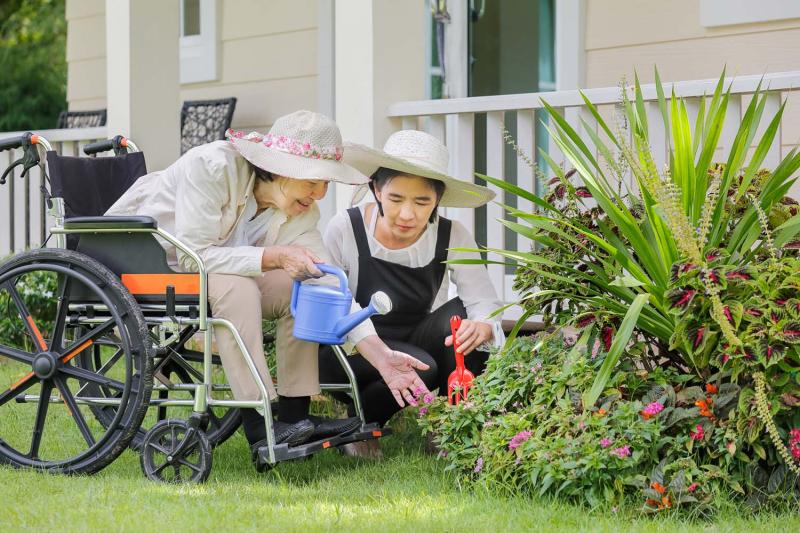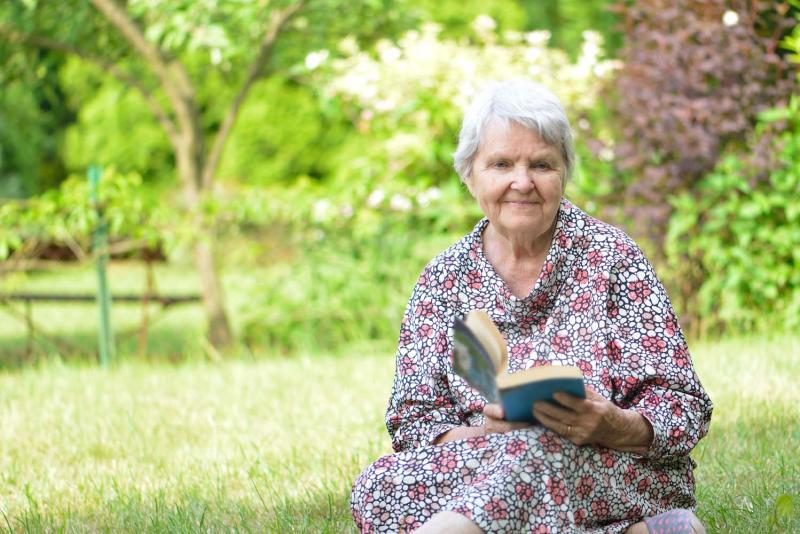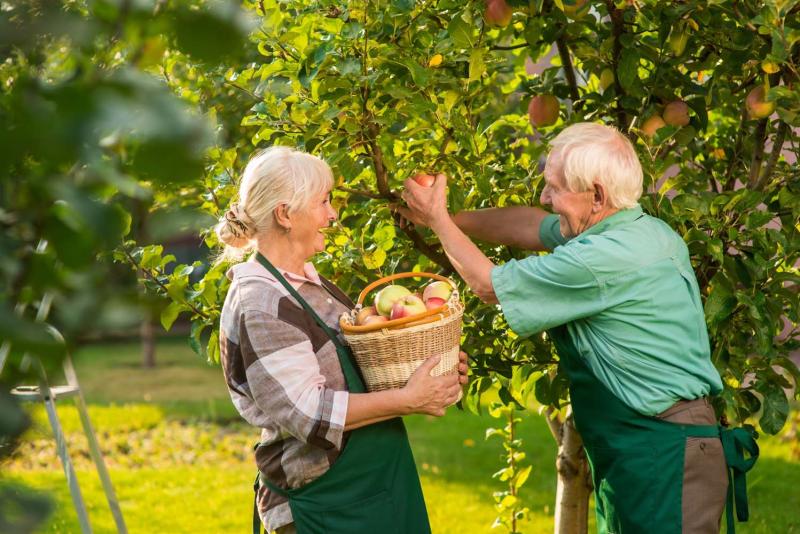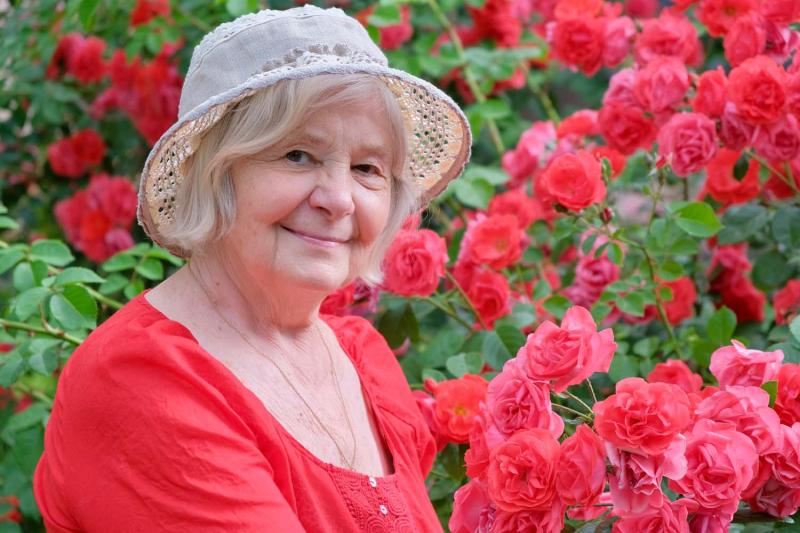Key points
- Nature-based interventions have been found to provide a ‘healing benefit’ improving the health and overall wellbeing of older adults.
- For older adults living in residential aged care, horticulture and gardening activities can help improve life satisfaction, subjective happiness, and meaningful social connection, while reducing depression, feelings of isolation and loneliness.
- There are often significant barriers preventing access to garden spaces and the outdoors for older people, particularly for individuals living with dementia in residential aged care. Some of these restrictions oppose basic human rights and require immediate action.
- In planning and providing nature-based activities, a person-centred approach is important to consider. This involves identifying the types of nature-based activities that appeal to the older person’s needs and which they find engaging, enjoyable, purposeful, and meaningful.
There is substantial evidence that exposure and contact with nature can significantly improve/support the health and wellbeing of older adults. [1] A nature-based activity is any meaningful and enjoyable activity taking place in nature, immersed in and hands-on with the natural world or appreciating nature. These activities can take place inside or outdoors and can include horticulture and gardening activities with active involvement in or passive appreciation of natural environments. [2] Nature-based activities have been shown to help reduce social isolation, depression and loneliness and can be provided in any aged care setting.
Any nature-based activity provided in the aged care setting should take a person-centred approach. Not everyone will want to participate in nature-based activities such as gardening. For more information on person-centred care and meaningful lifestyle activities, see the Person-Centred Approach evidence theme.
This evidence theme is a summary of one of the key topics identified by a scoping review of meaningful lifestyle activities in aged care. The review identified important considerations for the inclusion of nature-based activities in aged care, including indoor nature interventions, therapeutic horticulture, benefits of nature-based interventions, and the barriers preventing older adults from accessing gardens and outdoor spaces.
Indoor nature interventions
Interventions were split into ‘active’ interventions that included tactile interaction with real forms of nature, such as gardening and horticulture, and ‘passive’ interventions where residents could observe and appreciate forms of real nature, such as aquariums, garden views, and nature corridors. [2] The evidence to support the benefits of indoor nature interventions provided in residential aged care was inconsistent. However, higher quality studies in one review reported that indoor gardening and horticulture programs were effective for the cognition, psychological wellbeing, social outcomes, and overall life satisfaction of residents [2].
The lack of conclusive evidence in this area is perhaps related to the variation in types of indoor nature-based interventions and delivery of both active and passive activities. Further research is required to determine whether indoor nature interventions can provide meaning to people involved in aged care activities.
Therapeutic horticulture
Therapeutic horticulture is often used as an intervention in residential aged care to improve general wellbeing. Interventions can include wander gardens, where residents can appreciate the environment, plant growing, including hands-on caretaking, and commercial-based growing where produce is grown to sell. [3]
Many benefits of horticultural programs in residential aged care facilities have been identified. These include:
- Increased levels of physical activity
- Increased life satisfaction
- Improved subjective happiness
- Improved social connectedness
- Lower blood pressure
- Reduced levels of social isolation and loneliness
- Reduced levels of depression. [4, 5]
Individuals who participated in horticulture programs appreciated the end products and were satisfied with the fruit and vegetables they had grown. [5] They also reported social connection, hope, and a sense of achievement and companionship. The progression in task complexity of gardening activities allowed tailored participation for individuals, allowing older people with physical limitations to participate in meaningful activities. [5]
Barriers to gardens and the outdoors
Outdoor areas in aged care facilities should be accessible, attractive, and safe, allowing independent access for residents. Exposure to the outdoors can improve mood, calm agitation, and maintain a sense of continuity and identity, particularly for residents living with dementia. [6] In reality, people with dementia living in residential aged care facilities experience significant barriers to gardens and outdoor spaces. These barriers include:
- Safety concerns (including the risk of falls, altercations with other residents, and the perceived need for ongoing supervision)
- Security (high fences)
- Design and condition of outdoor areas (safe walking spaces and cleanliness)
- Physical layout of residential care homes (upper floors and ‘dead ends’)
- Locked doors or gates, keypads, fitted alarms, and disguised doors leading outside
- Weather events and seasons. [6]
These barriers can result in residents feeling controlled and imprisoned, unable to autonomously access garden areas, and feeling dependent on the permission of others to be able to go outside. This results in further hesitation to enjoy outdoor areas when staff do encourage outdoor activity.
Facilitators to garden and outdoor access
The layout and design of outdoor areas were considered important to facilitate engagement in nature-based activities. It was important to residents that these spaces include greenery that they could interact with, touch and smell, and pathways that were visible, smooth and level allowing safe passage. Readily available comfortable seating, shade, and shelter were also important elements. Staff preferred areas that were easily visible from inside, with fences for safety. [7]
Individuals can encourage the use of outdoor gardens and green spaces by:
- Actively supporting older adults to access the outdoors.
- Understanding the benefits of nature-based activities and providing opportunities and support for residents to engage.
Organisations, their facility managers, and policymakers more broadly can support meaningful nature-based activities by:
- Reviewing the accessibility of gardens and outdoor spaces to aged care users and support carers to enable older adults to autonomously participate in nature-based activities.
- Addressing the perceived issue of safety as a barrier to nature-based outdoor activities and redesigning as needed.
This evidence theme has been informed by the results of a rapid scoping review intended to map the current published research in this area. We acknowledge that our findings reflect only the limited evidence available concerning the concept of ‘meaningful’ physical activities. Furthermore, our Evidence Advisory Group (EAG) and practice professionals suggest this evidence may not adequately reflect the understanding and practical implementation of meaningful lifestyle activities in aged care.
- World Health Organization. Urban green spaces and health: A review of evidence [Internet]. Copenhagen: WHO Europe; 2016 [cited 2022 Sep 25]. Available from https://www.euro.who.int/__data/assets/pdf_file/0005/321971/Urban-green-spaces-and-health-review-evidence.pdf
- Yeo NL, Elliott LR, Bethel A, White MP, Dean SG, Garside R. Indoor nature interventions for health and wellbeing of older adults in residential settings: A systematic review. Gerontologist. 2020;60(3):e184-e99.
- Moeller C, King N, Burr V, Gibbs GR, Gomersall T. Nature-based interventions in institutional and organisational settings: A scoping review. Int J Environ Health Res. 2018;28(3):293-305.
- Howarth M, Brettle A, Hardman M, Maden M. What is the evidence for the impact of gardens and gardening on health and well-being: A scoping review and evidence-based logic model to guide healthcare strategy decision making on the use of gardening approaches as a social prescription. BMJ Open. 2020;10(7):e036923.
- Gagliardi C, Piccinini F. The use of nature-based activities for the well-being of older people: An integrative literature review. Arch Gerontol Geriatr. 2019;83:315-27.
- Newton R, Keady J, Tsekleves E, Adams Obe S. 'My father is a gardener ... ': A systematic narrative review on access and use of the garden by people living with dementia. Health Place. 2021;68:102516.
- van den Berg M, Winsall M, Dyer SM, Breen F, Gresham M, Crotty M. Understanding the barriers and enablers to using outdoor spaces in nursing homes: A systematic review. Gerontologist. 2020;60(4):e254-e69.
Connect to PubMed evidence
This PubMed topic search is limited to home care and residential aged care settings. You can choose to view all citations or citations to articles available free of charge.



